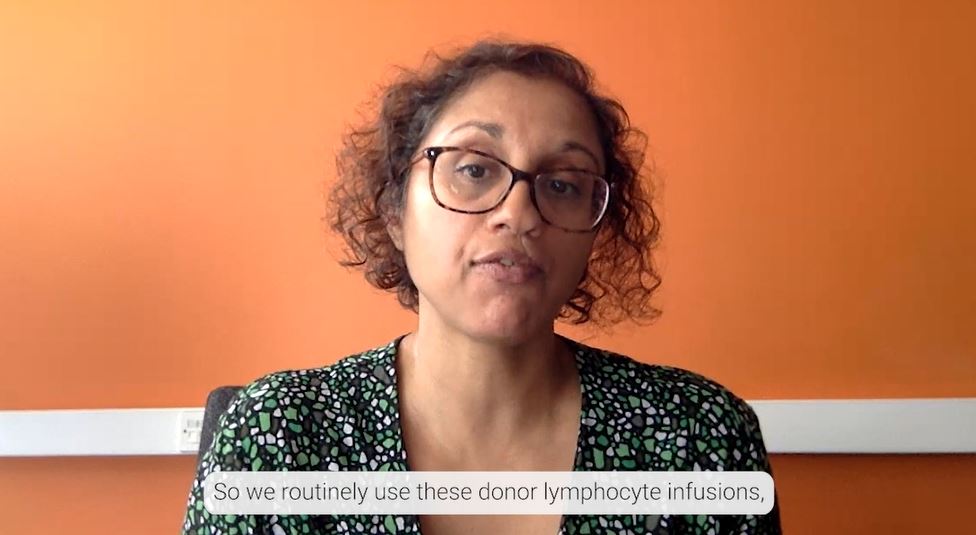Could we predict or prevent relapse after stem cell transplant?
What if we could predict who would benefit most from a donor lymphocyte infusion after stem cell transplant? Could we prevent relapse of acute myeloid leukaemia?

Dr Pramila Krishnamurthy, King’s College London, aims to better understand why leukaemia sometimes comes back after a stem cell transplant, and if a donor lymphocyte infusion might help prevent this.
 The challenge
The challenge
Acute myeloid leukaemia (AML) is the most common type of acute leukaemia in adults, and one of the most deadly forms of blood cancer. Stem cell transplantation is often the only effective treatment for AML. Yet, in more than half of people who receive a transplant, their leukaemia eventually comes back.
Donor lymphocyte infusions (DLI) are sometimes given alongside stem cell transplants. DLIs are mature immune cells taken from the same donor and given to the recipient shortly after the transplant, to try and kill any remaining leukaemia cells that might be present.
But even with DLIs, about 30% patients still see their leukaemia return. What’s more, DLIs carry the risk of serious complications, so some patients may not benefit from a DLI at all.
We need to get better at predicting which patients will benefit from DLI, and who might be better off with another option.
The science behind the research
During her John Goldman Fellowship, Dr Pramila Krishnamurthy hopes to find ways to predict whether or not a person receiving a stem cell transplant will benefit from also having a DLI.
To do this, Pramila will be using samples collected during a groundbreaking clinical trial (supported by Leukaemia UK and others) which compared different strategies for DLI.
She will study in detail a series of blood samples which were donated by the patients after their transplant. By doing this, Pramila can better understand how the immune system recovers after stem cell transplants, and the role that DLI plays in that.
What difference will this research make?
DLIs have the potential to improve a person’s chances of being cured of their AML, but they don’t work for everyone. Pramila’s research could lead to a test which will tell if a patient will benefit from DLI or whether an alternative approach would be better.
This will help make sure people only get the treatments they need, and not therapies which won’t benefit them but will still carry a risk of side-effects.
 Play Video
Play Video 